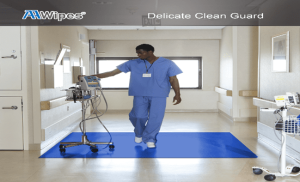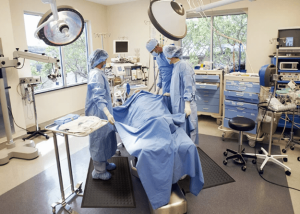Hospital Mats
Hospital mats, also known as medical mats or healthcare mats, are specifically designed to meet the unique needs and requirements of healthcare facilities. These mats serve a crucial purpose in maintaining a clean and safe environment for both patients and healthcare professionals. Unlike regular mats, hospital mats undergo rigorous testing and are made with specialized materials to ensure high levels of hygiene and safety.




One of the key differences between hospital mats and other mats is their antimicrobial properties. Healthcare facilities are highly prone to the spread of infections and diseases, making it essential to have mats that can inhibit the growth of bacteria, fungi, and other harmful microorganisms. Hospital mats are often treated with antimicrobial agents or made from materials that naturally possess antimicrobial properties, such as rubber or vinyl. This helps to create a cleaner and healthier environment, reducing the risk of cross-contamination and infection transmission.
In addition to their antimicrobial properties, hospital mats are designed to be slip-resistant. Healthcare facilities are fast-paced environments where spills and fluids are common occurrences. Hospital mats are equipped with features like textured surfaces, drainage holes, or raised edges to prevent slips, trips, and falls. These mats provide a secure and stable surface for healthcare professionals, patients, and visitors, even in wet or high-risk areas such as operating rooms, laboratories, or patient rooms.
Comfort and ergonomics are also crucial factors in hospital mats. Healthcare professionals often have to spend long hours on their feet, leading to fatigue and discomfort. Hospital mats are engineered with cushioning and ergonomic support to reduce the strain on joints and muscles. They offer shock absorption, relieving pressure on the feet, legs, and back. This not only enhances the comfort of healthcare professionals but also contributes to their overall well-being and productivity.
Hospital mats are also designed to be easily cleanable and resistant to chemicals. Healthcare facilities require frequent and thorough cleaning to maintain a sterile environment. Hospital mats can withstand regular cleaning with disinfectants, detergents, and other cleaning agents without deteriorating in quality or losing their antimicrobial properties. They are also resistant to staining and can be easily wiped down or mopped, ensuring a hassle-free cleaning process.
Furthermore, hospital mats often come in specific sizes and shapes to fit different areas within a healthcare facility. They can be customized to fit hallways, patient rooms, operating rooms, waiting areas, and other spaces. This versatility allows for seamless integration into the facility’s overall design and ensures optimal coverage and protection.
In summary, hospital mats are specially designed to meet the unique demands of healthcare facilities. They offer antimicrobial properties, slip resistance, comfort, easy cleanability, and customization options. By investing in hospital mats, healthcare facilities can prioritize safety, hygiene, and the well-being of their patients and healthcare professionals.
